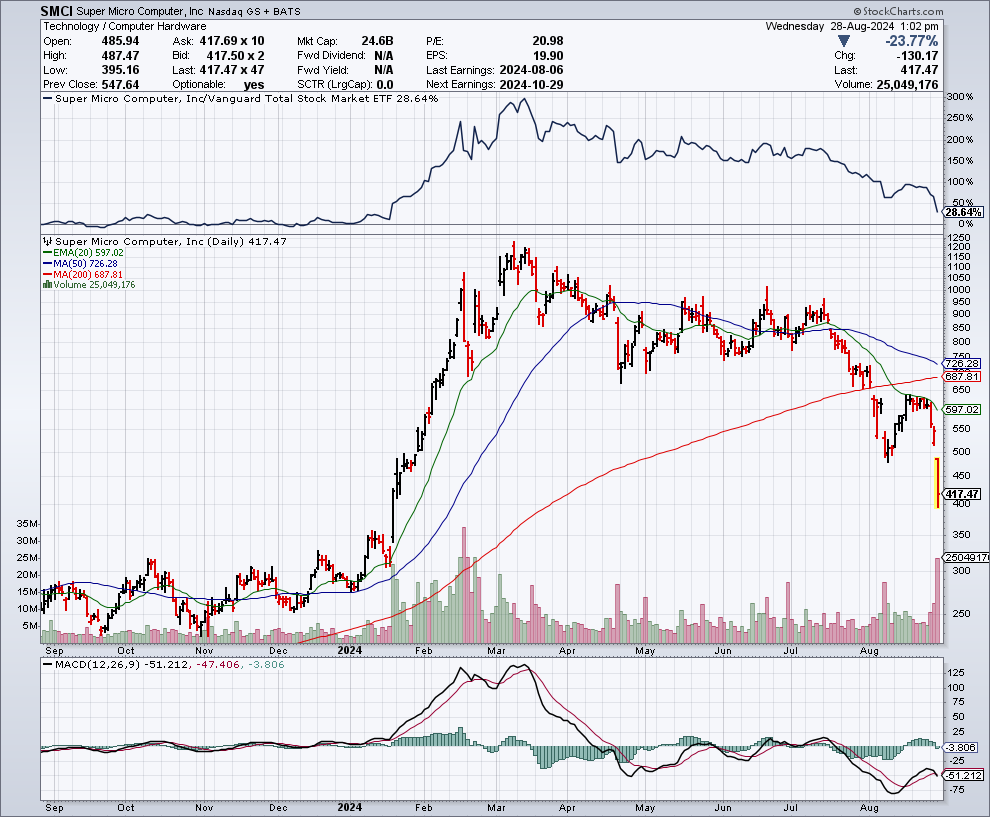Supermicro said it won't be able to file its annual report on time "without unreasonable effort or expense" because it needs to assess its "internal controls over financial reporting."
That disclosure lands shortly after Hindenberg Research issued a scathing report about Supermicro.
Needless to say, Supermicro's stock hasn't fared well since investors are more likely to sell first and ask accounting questions later. Supermicro shares are trading at $405, down about 25% on the day. Supermicro peaked at $1,229 following earnings surprises due to the generative AI buildout. Simply put, Supermicro looked like one of the few winners of genAI trickledown economics given most of the gains have gone to Nvidia. Supermicro is planning on a 10-for-1 stock split.
- The generative AI buildout, overcapacity and what history tells us
- AI infrastructure is the new innovation hotbed with smartphone-like release cadence
The company did say that its fourth quarter results and outlook weren't affected by the annual report delay. Supermicro said its fiscal 2025 revenue will be between $26 billion to $30 billion, up from $15 billion in fiscal 2024.

On Supermicro's fourth quarter conference call, CEO Charles Liang said the company was looking to scale aggressively via direct liquid cooled systems to hyperscalers and enterprise customers. Supermicro wants to be a complete AI data center provider.
"Our Taiwan capacity is getting bigger and Malaysia capacity will be ready. So, we're fully ready for large-scale datacenter customer, but we will be selective. So that's why we foresee only $26 billion to $30 billion. If we try to be more aggressive on a large scale, our growth can be even faster than that. But we try to grow in both ways enterprise and large-scale datacenter kind of try to balance so to maintain our healthy profitability."
Liang did face some skepticism about Supermicro's expansion. One analyst noted that the company doubled revenue in fiscal 2024, but had negative cash flow of $2.6 billion. The question is whether Supermicro has to burn another $2.6 billion or so to double revenue in fiscal 2025.
In response to the cash burn question, Liang said the company may not burn that much cash but could if it chases market share.
What remains to be seen is whether Supermicro's annual report delay is a sign of accounting issues similar to what the company saw in 2018 or just a blip. It's also possible that Supermicro is part of the unraveling of enthusiasm over the genAI infrastructure buildout.


